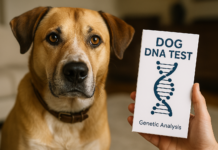Last Updated on December 31, 2022 by Dogs Vets
Can Dogs Have Melatonin? Uses and Benefits
Melatonin is a hormone that your dog may have and it has many health benefits. It is also used to help treat things like anxiety, Cushing’s disease and Alopecia-X.
Before you take a melatonin supplement, you should make sure it is safe for your pet to take it.
Treatment For Cushing’s Disease
If your dog suffers from Cushings, melatonin treatment can help relieve its symptoms.
Melatonin, a natural hormone found in all mammals, works to inhibit the aromatase enzyme. This prevents the body from making too much of the stress hormone, cortisol. It also helps to keep the adrenal gland functioning properly.
Treatment for Cushings in dogs can include conventional medications and surgery.
While both methods have been effective in humans, they may not be as effective in dogs. Surgery is not recommended for dogs with Cushings.
Some veterinarians have found that using lignans, a natural substance found in plants, can help treat the condition. Lignans work similarly to melatonin, by inhibiting two enzymes that are necessary for the production of cortisol.
Lignans can be beneficial to canine Cushings, especially when used in combination with other natural remedies. They can be bought over the counter and are safe for use by pets.
One of the main reasons for taking lignans is to support the adrenal glands. The glands produce too much cortisol and are responsible for Cushings.
Treatment For Anxiety
Melatonin treatment for anxiety in dogs can be beneficial for pets suffering from stress, depression, or phobias. It is an all-natural substance that can help your dog relax.
Many dogs experience anxiety because of exposure to noise, a sudden change in environment, or being separated from their owners.
If your dog suffers from separation anxiety, a melatonin supplement may be a good option for them.
Melatonin can be given to your dog in liquid form or as a chewable tablet.
Most veterinarians recommend giving your dog a dosage three times per day. Dosages vary based on your dog’s weight, age, and breed.
Melatonin supplements can also be used to calm your dog before a trip or flight. Your pet should receive a dosage thirty minutes before departure. Always make sure that your pets dont not suffer from a melatonin overdosage.
There can be many aftereffects of melatonin overdose. A study published in the Journal of the American Veterinary Medical Association found that melatonin has been helpful in reducing the symptoms of separation anxiety in dogs.
In fact, 80 percent of dogs were able to relax thanks to melatonin supplements.
Treatment For Alopecia-X
Melatonin is a hormone that is produced by the pineal gland in response to darkness. It inhibits the secretion of follicle stimulating hormone (FSH) and luteinizing hormone (LH).
Melatonin has been used to treat a variety of hair cycle arrest alopecias in dogs. However, its effectiveness is still being evaluated.
Some studies have shown that supplemental melatonin is helpful in two conditions that cause hair loss in dogs: pattern baldness and CFA.
One study found that melatonin prevented hair loss in nine dogs. In another study, a melatonin implant was used for the treatment of alopecia in dogs with different etiologies.
The implant was placed under the skin and the hair regrows over a period of months. While the use of melatonin as a treatment for Alopecia-X is an interesting idea, the actual success rate is uncertain.
There are a number of factors that need to be considered. Besides the alopecia, a dog will also be evaluated for hyperadrenocorticism.
Side Effects
Melatonin is a supplement used to help dogs sleep. It can be given orally or with food. The dose of melatonin depends on your dog’s size, age, and condition.
A small dog may need only 1 milligram of melatonin. Larger dogs may require more. Your veterinarian will determine the correct dosage for your dog.
When giving melatonin to your dog, it is important to remember to read the product’s ingredients list. Some melatonin supplements contain ingredients that are unsafe for your dog, such as xylitol.
Xylitol is an artificial sweetener, but it is toxic to animals. To avoid this, consult your vet before giving your dog a melatonin supplement. Several studies have found that melatonin is safe to use in dogs, but not all dogs can tolerate it.
You should never give your dog melatonin if they are pregnant or lactating. Because of its effects on the immune system, melatonin can be used to treat Cushing’s disease in dogs.
This condition is caused by an increase in cortisol, which negatively impacts almost every organ in the body. But it would be always wise to make sure that you avoid melatonin supplements for your pets as much possible.
You can try different ways to make your dogs sleep. You can also observe different dogs sleeping positions and see which position your dog is comfortable with.
Conclusion
Melatonin for dogs can be administered in a few different ways including pills, chews, and liquids. The most important thing to consider is the dosage as it depends on the size of your dog. Start with the lowest possible dose and increase gradually as needed.
Melatonin is a great way to reduce stress and anxiety in dogs but always check with your veterinarian first to make sure it’s the right solution for your pet.
Facts Check
We hope you enjoyed this article… What are your thoughts?
Please feel free to share this article!























